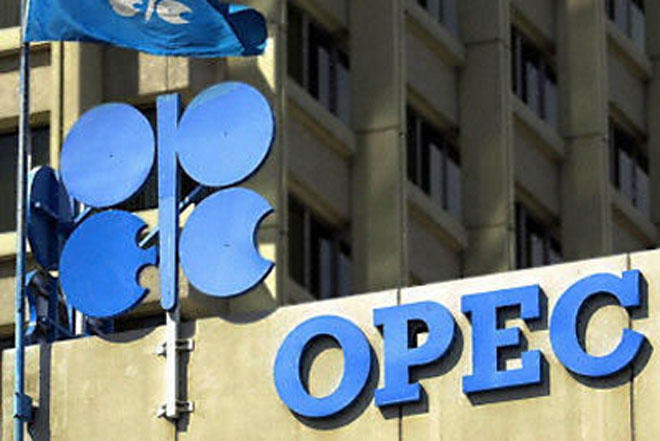Qatar's withdrawal from OPEC could lead to downtrend in oil market

By Abdul Kerimkhanov
Qatar’s withdrawal from the Organization of Petroleum Exporting Countries (OPEC) could lead to a downtrend in the oil market, Sabit Baghirov, ex-head of Azerbaijan's State Oil Company (SOCAR), well-known economist, told Trend on December 3 commenting on the news of Qatar’s withdrawal in 2019.
"As you know, oil prices are very volatile and political factors play a role in this. I do not believe that Qatar’s withdrawal from the OPEC will lead to a domino effect and that OPEC countries are ready for this trend. But it can serve as a certain impetus in this direction, since Qatar is quite an influential country in the energy market," Bagirov said.
Earlier, the Minister of Energy of Qatar Saad Bin Srid Al-Kaabi announced the country's intention to leave OPEC in January 2019.
Commenting on this decision, he noted that Qatar wants to focus on gas production and the production of liquefied natural gas.
"The decision to withdraw from OPEC was not political or related to disagreements with other OPEC member countries. This is a technical decision, due to the desire to strengthen the position of Qatar as a reliable energy supplier in the world, as well as based on the volume of Qatar oil production,” said al-Kaabi.
The announcement comes ahead of the meeting by OPEC and its allies including Russia on Dec. 6-7 to discuss cutting supply.
The minister said the decision was not easy as Qatar has been in OPEC for 57 years, but that the country’s impact on OPEC production decisions was small.
He stressed that Doha would continue to abide by all its commitments like any other non-OPEC oil producer.
He noted that Qatar is going to remain the largest supplier of liquefied natural gas in the world.
Currently, Qatar produces about 620,000 barrels of oil per day.
The Organization of Petroleum Exporting Countries (OPEC) is an international intergovernmental association established by oil-producing states to control production quotas. OPEC includes Algeria, Angola, Venezuela, Gabon, Iran, Iraq, Congo, Kuwait, Qatar, Libya, the United Arab Emirates, Nigeria, Saudi Arabia, Equatorial Guinea and Ecuador. Members of the organization control about two-thirds of world oil reserves, they account for up to 45 percent of all world production and half of the exports.
OPEC and non-OPEC producers reached an agreement in December 2016 to curtail oil output jointly and ease a global glut after more than two years of low prices. OPEC agreed to slash the output by 1.2 million barrels per day from January 1.
Non-OPEC oil producers such as Azerbaijan, Bahrain, Brunei, Equatorial Guinea, Kazakhstan, Malaysia, Mexico, Oman, Russia, Sudan, and South Sudan agreed to reduce output by 558,000 barrels per day starting from January 1, 2017.
OPEC and its partners decided to extend its production cuts till the end of 2018 in Vienna on November 30, as the oil cartel and its allies step up their attempt to end a three-year supply glut that has savaged crude prices and the global energy industry.
---
Abdul Kerimkhanov is AzerNews’ staff journalist, follow him on Twitter: @AbdulKerim94
Follow us on Twitter @AzerNewsAz
Here we are to serve you with news right now. It does not cost much, but worth your attention.
Choose to support open, independent, quality journalism and subscribe on a monthly basis.
By subscribing to our online newspaper, you can have full digital access to all news, analysis, and much more.
You can also follow AzerNEWS on Twitter @AzerNewsAz or Facebook @AzerNewsNewspaper
Thank you!
